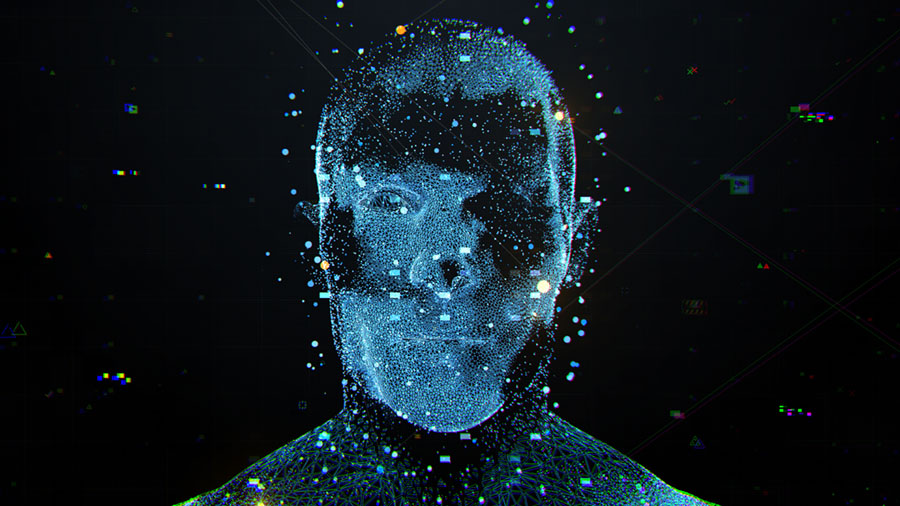
America’s Biometric Industry
The Biometric Industry Threatens Basic American Rights to Privacy. Soon These Devices Will be Embedded in Legal Documents, Passports and Humans for Tracking by the NWO.
The biometric industry is advancing at a greater pace as of late, due to breakthroughs in technology.
As of January 14, 2009, all passports issued to citizens of the European Union included digital facial scans and fingerprints using biometrics.
Some countries such as France, Estonia and Portugal even chose to take the fingerprints of all children over the age of six.
Also, on January 14, police and security agencies were given international access to a huge database of fingerprints. Sarah Ludford, a Liberal MEP from the United Kingdom, believes that this new legislation is a violation human rights.
Gathering biometric data for passports is one thing, and if people don’t want to comply and provide their fingerprints, they simply won’t be issued a passport that allows them to move around from one country to the next.
But what happens when the government wants to start populating their databases with the personal biometric data of all citizens? What happens to those people who refuse to give up their right to privacy?
These are all questions that need to be answered before the biometric industry is allowed to easily infiltrate into all walks of life such as security, health care and education without resistance, as it is today.
The global elite, working through governments by way of shadow groups like Bilderberger, the Trilateral Commission and others, are forming a One World Government that is bent on the control of each individual, using tracking devices and personal records, which are stored in biometric devices.
Biometric Surveillance
Security experts say that advocates for human rights and privacy can’t deny that biometric surveillance is great for finding criminals in a crowd, or air travel isn’t safer than it was before.
But knowing people expect they have a reasonable level of privacy, including the right not to have their biometric data added to databases that store information about criminals and terrorists is relevant.
It’s the job of Congress to protect privacy rights and give Americans assurance that there are laws against using biometric data for inappropriate uses.
However, the American Congress isn’t able to give this reassurance because they want biometric data on every American citizen to be stored in a massive database.
The biometric industry is full of ideas and plans for how biometrics can be used now and in the future.
And every one of these ideas will violate the rights of innocent people who will be subjected to having their biometric data gathered and stored. Any time people are expected to give up something of them selves, their rights are disregarded.
RFID in Passports Around the World
Civil liberties organizations from around the world are loudly voicing their opposition to a proposal that will violate the rights of millions of people.
The International Civil Aviation Organization (ICAO) has proposed cross border sharing of biometric data as well the embedding of Radio Frequency Identification (RFID) tracking chips in passports from all countries by the year 2015.
If this proposal is accepted and passed it will mean that over one billion passports around the world will be able to be tracked at any given time by any government official who has access to this information.
And if the biometric industry has its way, this proposal will become a reality, paving the way for the elite controlled One World Government into whose hands today’s governments are playing.
Human rights advocates and organizations from Asia, North America, Australia and Europe have sent an open letter to the ICAO stating their unequivocal rejection of this proposal on the grounds that an international identity register would wipe out the privacy rights of billions of people and allow world governments access to far too much personal information.
Ethics Questioned
The conflict between security and privacy is one that is growing ever stronger as more and more biometric systems are set up around the world.
Governments, security agencies, law enforcement agencies, and others who make their living by tracking people, want tighter security conditions while average American citizens and human rights advocates want to protect human privacy.
What do Americans have to give up in order to live in a safer world?
Security experts will say that biometric industry identification isn’t intended to diminish people to nothing more than a set of biometric patterns but instead strives to ensure that people are who they say they are.
But those people concerned about the loss of privacy that comes when biometric data is collected are worried about three things: biometric identity verification will lead to monitoring the behavior of people that biometric data will be become interrelated and that information is accessed by an unknown person for an unknown reason.
These are all valid concerns that conflict with the aims and goals of what biometric systems are trying to accomplish.
”Is there a number or mark planned for the hand or forehead in a new cashless society? YES, and I have seen the machines that are now ready to put it into operation.”
– Ralph Nader

 My First Amazing Ayahuasca Experience
My First Amazing Ayahuasca Experience  Pine Needle Tea
Pine Needle Tea  The REAL Controllers of Humanity: The Papal Bloodlines
The REAL Controllers of Humanity: The Papal Bloodlines  Is it Global Warming or Cooling?
Is it Global Warming or Cooling?  Gun Rights and Obama Examined
Gun Rights and Obama Examined